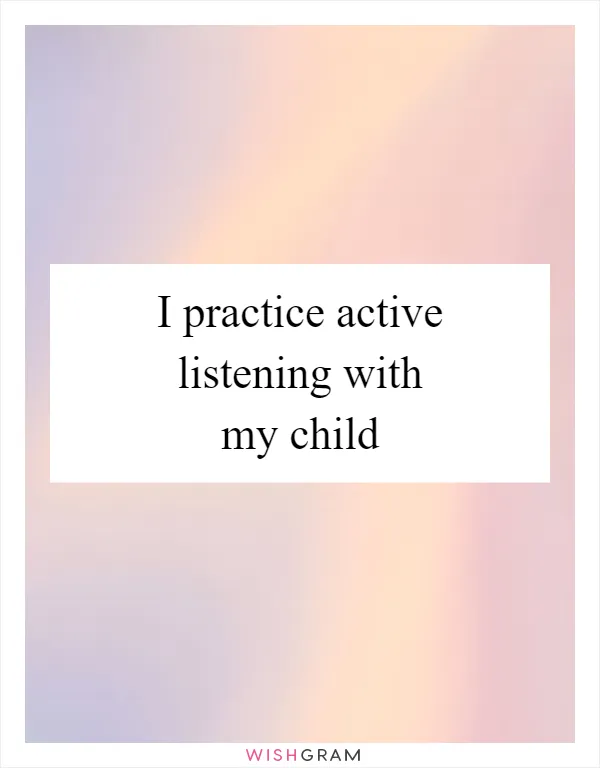I practice active listening with my child
As a parent, it's important to communicate effectively with your child. One way to do this is by practicing active listening. Active listening means fully engaging with your child when they speak, giving them your undivided attention, and responding thoughtfully to what they say. By doing this, you show your child that you value their thoughts and feelings, and you create a safe space for them to express themselves.
When you practice active listening with your child, you are not just hearing their words, but you are also paying attention to their body language, tone of voice, and emotions. This helps you to understand their perspective and respond in a way that is empathetic and supportive. It also helps to build trust and strengthen your relationship with your child.
To practice active listening, start by giving your child your full attention. Put down your phone, turn off the TV, and make eye contact with them. Encourage them to speak by asking open-ended questions and showing interest in what they have to say. When they are speaking, avoid interrupting or finishing their sentences. Instead, let them finish their thoughts before responding.
When you respond, do so thoughtfully. Repeat back what your child has said to show that you understand their perspective. Use phrases like "I hear you" or "That must be tough" to show empathy. Avoid giving advice or trying to solve their problems right away. Instead, focus on validating their feelings and showing that you are there to support them.
By practicing active listening with your child, you are creating a positive and supportive environment for them to grow and thrive. You are also modeling effective communication skills that they can use in their own relationships. So, repeat this affirmation to yourself: "I practice active listening with my child". And remember, the more you practice, the easier it becomes.
